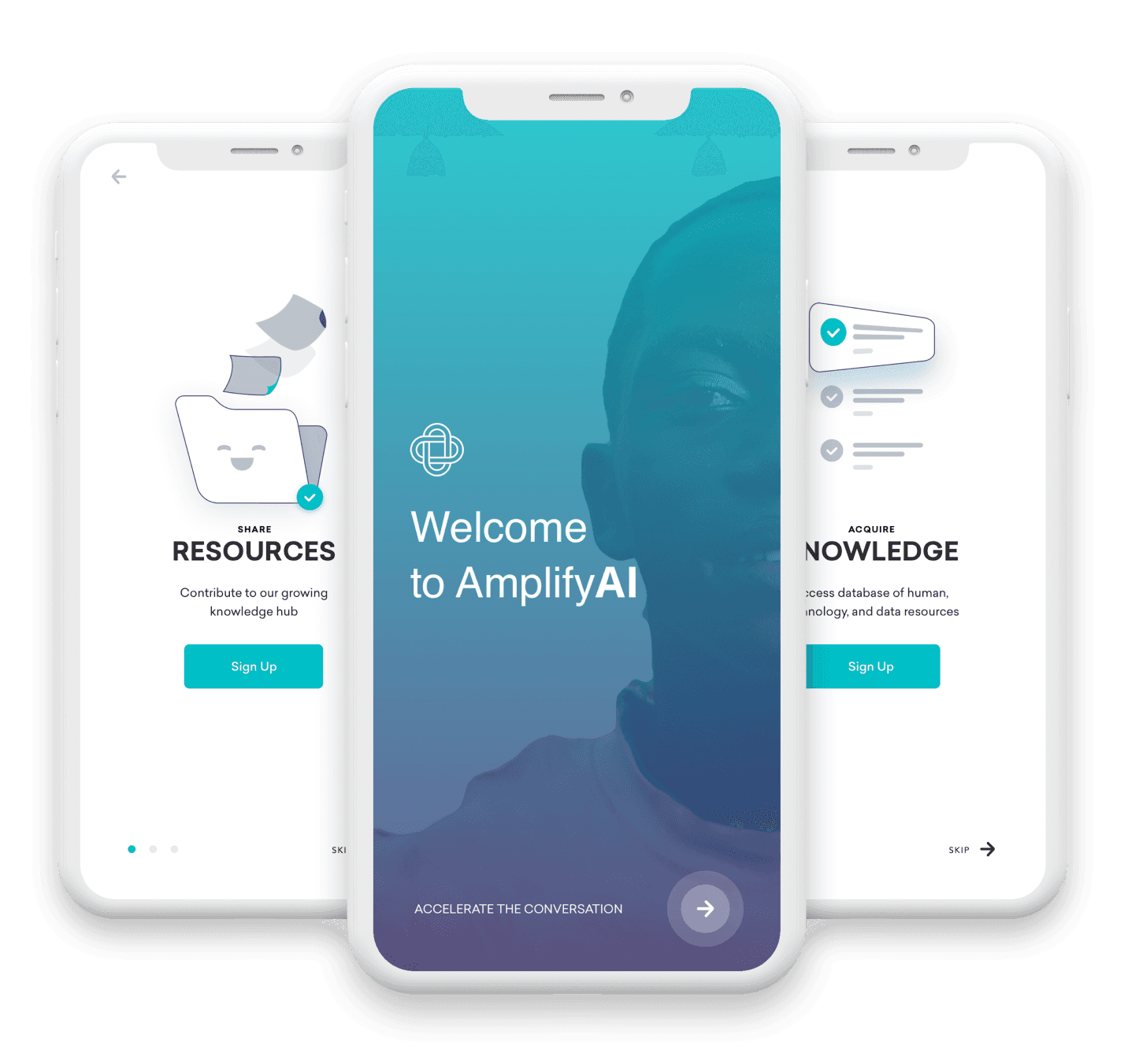Social Sector
Collective Intelligence
PROBLEM
SOLUTION
At AmplifyAI, we confronted Africa's agricultural challenges, focusing on small-scale farmers vital to the continent's food security. Our mission was to enhance traditional farming knowledge and practices, facilitating growth and sustainability in this critical sector.
Our Collective Learning initiative bridged the gap in shared resources and skills. It promoted collaborative solutions, addressing societal and environmental challenges in the agricultural domain.
AmplifyAI tackled the urgent need to modernize African small-scale farming. By bridging knowledge gaps, we aimed to transform these practices into efficient, productive, and sustainable operations.
Our extensive field studies and interactions with African farmers identified key areas like crop management and market access. This research underpinned our tech-driven approach to revolutionize agriculture.
Gain empathy into the farmer experience and the frustrations and needs that exist.
Understand the farmers process (needs-finding, tools used and knowledge).
Uncover the common barriers to success for farmers and
communities.
Our engagement with a variety of individuals, including farmers and workers, in Kenya and Tanzania brought a wealth of perspectives, enhancing the development of targeted agricultural solutions.
Through explorative dialogues and affinity diagramming, we grouped data to understand farmers' needs and challenges, paving the way for integrating these insights into our solutions.
We accomplished this by grouping individual data units into logical sets. Affinity diagramming proves to be a supreme technique to bring order to what might otherwise appear chaotic. This process allowed us to assemble various fragments of data and wisdom, rendering the repetitive crucial.
After synthesizing our findings, we unearthed three critical insights that shed light on the tensions in the farmer experience. Our deep needfinding emphasized the importance of innovation over incremental improvements.
Lack of knowledge sharing especially when competing for the same resources.
Relationships play an important role in how farmers pass on knowledge.
Many development projects rarely collect the right amount or the right type of data.
We introduced 'Alex' - not just a persona, but an archetype representing our target user base. This helped us build our designs grounded in real user needs and behaviors.
By aligning these needs with our business goals, we ensured our solutions addressed real problems, not just superficial pain points.
We aligned our business goals with user needs and identified three key themes to guide our design process. This alignment ensured that our solutions targeted the primary challenges faced by our users, validating the significance and relevance of the problems we were addressing.
Three core themes emerged:
How might we help Alex access information about farming practices/methods?
How might we help Alex share knowledge about farming practices/methods with others?
How might we help others share tools, practices, and methodologies with Alex?
With a clear problem statement in hand, we dived into ideation, exploring various options through a process of prototyping and testing. Our goal was to develop accessible solutions for 'Alex' to gain information on farming practices and methods.
This led to the creation of technology stacks focused on agriculture and community knowledge, laying the foundation for a broader knowledge base that could expand to other critical areas like human rights, water management, and health.
In the design process, we emphasized the importance of understanding and effectively communicating information. Our approach was not just about style, but about creating a language that resonated with our users and met their needs. This philosophy guided our design decisions, ensuring that the final product was not only aesthetically pleasing but also functionally effective and user-friendly.
AmplifyAI enhances decision-making by mapping successes, challenges, and connections between various stakeholders.
It replaces traditional resources with a comprehensive, global database of insights. Our unique 'knowledge cards' system, centered around our user 'Alex', breaks down complex data into manageable insights.
This approach, coupled with a user-friendly dashboard and a robust design system, ensures that users like Alex can make informed decisions in agriculture, supported by a wealth of resources and community input.
A user-friendly dashboard grants Alex access to all the details necessary for making educated judgments on farming.
Outcome
INCREASE IN TRANSFER OF KNOWLEDGE
COMPREHENSIVE DATABASE OF DATA-DRIVEN KNOWLEDGE
Next case study
Generation Org



















